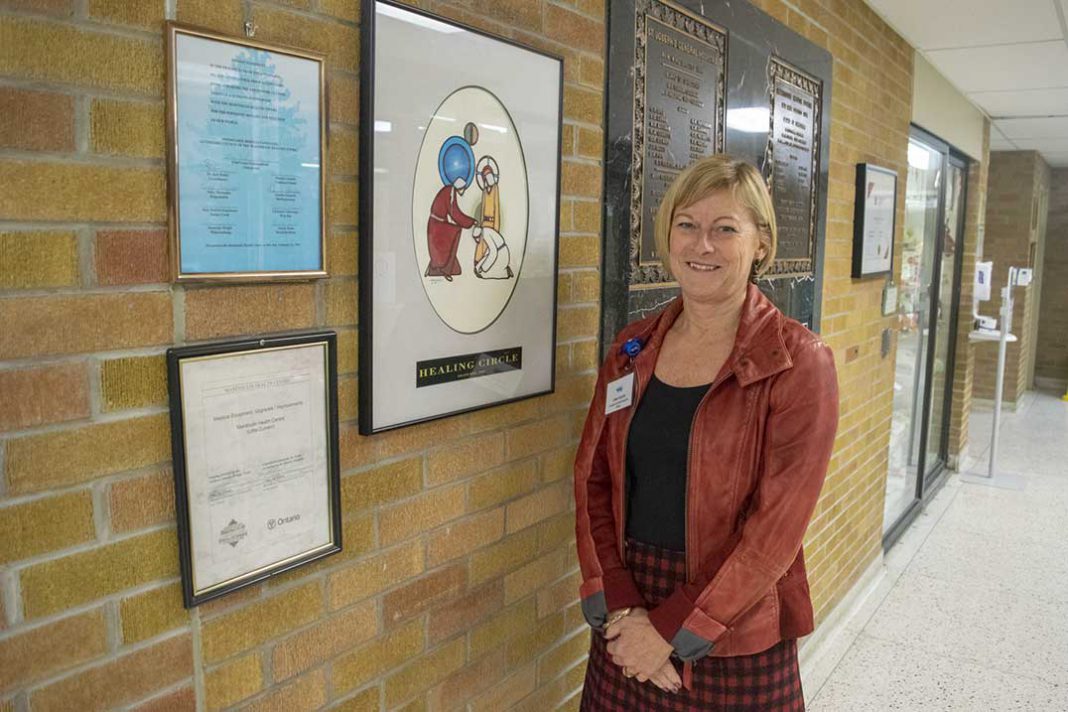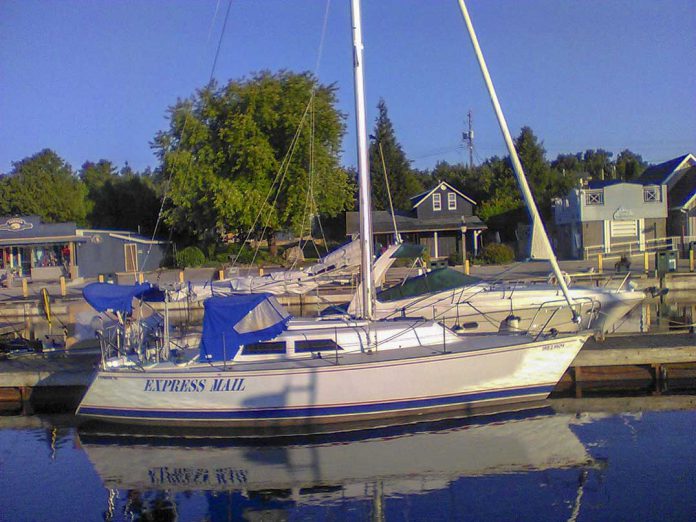LITTLE CURRENT—Manitoulin Health Centre (MHC) has a new president and CEO at the helm of the corporation, and Lynn Foster says she is excited to continue supporting her community in this new role.
“It’s not a job. For me, this is a call to serve the organization,” says Ms. Foster in an interview with The Expositor.
Ms. Foster has been working with MHC for 14 years in a few roles, starting out as chief financial officer in 2005. Four years ago, she moved into the position of vice-president of corporate services, an operational role that encompassed overseeing all aspects of the hospital outside of the clinical setting. She has been in the role of president since October 1.
Before MHC, Ms. Foster has worked with the Canadian military, KPMG and the Nature Conservancy of Canada. She holds a business undergraduate degree from Royal Military College and obtained her chartered professional accountant (CPA) certification. While she was working at MHC, she finished a postgraduate degree with a specialization in leadership. She studied the corporate culture at MHC for her thesis.
Based on her public and private sector experience, Ms. Foster says she has taken on a number of progressive leadership roles that have made her “well poised to assume the top leadership role at MHC.”
Over the summer, Ms. Foster says she was able to give some input into the hospital’s strategic plan so it could best reflect her leadership style. She stresses that successful operations are a team effort and also extends her thanks to the hospital board for its support over the years.
“I recognize the role is enormous and I’m the one responsible for all of MHC,” she says. “I recognize I have an amazing team beside me, folks I can rely on and turn to for sound advice.”
She adds that everyone should be engaged in major projects to increase morale and support innovation.
“I want every member at MHC to be able to identify their contributions to the successes,” Ms. Foster says. “Everyone has a part to play.”
That view towards seeking opportunities to collaborate and further the organization as a whole is part of what Ms. Foster describes as her style of “progressive leadership,” a technique that requires flexibility and adaptability so efforts can make stronger impacts.
“MHC is a very progressive organization. A very responsive organization. We like to think we thoughtfully respond to the needs of the community and get to know the needs through many sources,” she says.
After 14 years in MHC, Ms. Foster says she has obtained an understanding of how the corporation works and the roles that lie therein. She cites electronic health records improvements and the Mindemoya hospital expansion as two key initiatives on which she has worked and continues to develop.
When asked about potential challenges she may have to face, Ms. Foster pauses with a knowing smile.
“I prefer to call them opportunities rather than challenges,” she says. The change in provincial governance and its associated policy changes will have to be carefully evaluated to see how they will affect the healthcare system. She adds that with the aging population, ensuring proper support after patients leave the hospital is crucial, such as having adequate long-term care facilities and home support.
“This is not new; we will be continuing our efforts,” says Ms. Foster, adding that information about needs can come from sources including physicians, health centres and the hospital board.
“We have lots of processes in place to hear these voices,” she says.
Listening to the needs and opinions of her team is an important first priority for Ms. Foster.
“As a leader, I do plan to take the first 100 days to keep my eyes and ears open,” she says. “My role has changed significantly and in any new role there are new voices to listen to.”
In that spirit, Ms. Foster says she will reach out to community partners as much as possible to increase efficiency.
“There’s never enough resources, so if we collaborate, there’s better strength,” she says.
For Ms. Foster, ensuring a vibrant health support network is important on a personal level.
“I am also a member of the community and have been for a number of years. I do have a vested interest,” she says. “We offer service to neighbours and loved ones—that’s the common benchmark we use. Would we treat our loved ones that way?”
Compassionate care includes respecting patients’ cultural practices, their needs and their agency to control their healthcare experience.
“A patient owns their own care experience. We can offer choices, but those are their decisions to make,” says Ms. Foster.
Ultimately, Ms. Foster says she is excited to rise to the challenge of leading MHC.
“This is the opportunity of a lifetime,” she says. “I’ve been preparing for it for my whole professional career.”




